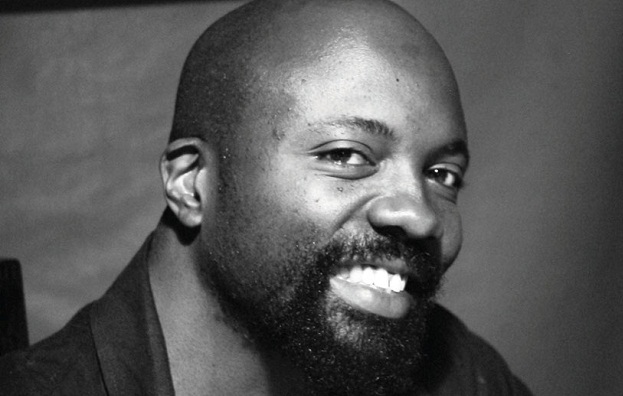
In January 2011, shortly after the International Criminal Court (ICC) prosecutor, Luis Moreno-Ocampo, first revealed his list of six prominent Kenyans whom he intended to charge with crimes against humanity, Kenya’s vice-president, Stephen Kalonzo Musyoka, was dispatched on a mission across Africa to rescue the Kenyan elite from international justice.
The specific aim of this shuttle diplomacy was to convince influential African Union (AU) member states to support a yearlong deferral of the Kenyan cases at The Hague. But Musyoka’s mission was essentially driven by panic among the country’s elite. After two years of dithering over the establishment of a local tribunal that would investigate and charge individuals for their role in the 2008 post-election violence, the government was facing an unprecedented situation. For the first time in Kenyan post-independence history, the country’s 50-year-old culture of impunity was on trial, and in the court of international opinion.
The erosion and manipulation of the Kenyan justice system by well-connected elites had long been a fact of daily life. A chronic case backlog sometimes stretching back decades, corruption of judicial officers, the disappearance of case files and other acts that ensured the powerful never faced justice were common factors of Kenyan power and influence. Indeed, the lack of faith in the Kenyan judiciary even led to the descent into widespread violence after the bitterly disputed December 2007 elections. But finally, to quote a Nairobi wag, the ICC has stepped forward as a court whose judges “could not be bribed, adjourned or made to disappear.”
Musyoka’s strategy aimed to rally opinion against the Kenya cases within the AU, the ICC’s single-biggest block of signatories, so that the continental body could push the UN Security Council into a favourable recommendation to defer the cases. His main argument was that Kenya had sufficiently recovered from its ‘moment of madness’. With a new constitution in place – hailed by some as the most innovative on the continent – the country was now able to deal with its demons. An equally persuasive argument was that, considering the still-delicate political state of the country, and with the possibility of another election around the corner, it was not in the interests of peace and reconciliation to reopen old wounds.
Crucially, Musyoka hoped to tap into a growing feeling among the AU’s 32 signatories to the Rome Statute that the ICC was unfairly targeting weak African states. But the shuttle diplomacy ended in failure. Today, four of the six indicted Kenyans have had their charges confirmed by the ICC. A deeply ingrained reluctance by the political elite to prosecute its leading lights at home has led the politicians into scoring a classic own goal.
For the survivors of Kenya’s violence, this was a comic drama of such breathtaking political incompetence that it would have left many rolling in the grass with hilarity if their neglected circumstances in camps littered across the country were not so desperate. There was at least a sense of poetic justice.
And yet the ICC also faces questions about its record. Across Africa, it has for the most part been African governments themselves that have invited international justice within their individual borders, but the ICC is nevertheless widely seen as using vulnerable African states to shore up its credibility. Of the 25 cases pending at The Hague, all are from the continent. A motley crew of warlords, rogue state presidents and rebel leaders are currently awaiting their date with international justice.
For some time, murmurs of discontent have been voiced around the continent; an AU review of the ICC in June 2010 resolved not to effect the warrant of arrest against the Sudanese president, Omar al Bashir. More recently, there has been growing unease that the ICC represents victor’s justice, and that self-interested Western interventions have increasingly been justified by the investigations and indictments taking place at The Hague. The new Ivory Coast government, although not fully signed up to the Rome Statute, accepted ICC jurisdiction to investigate and charge deposed former President Laurent Gbagbo and his associates with war crimes. There are also currently ongoing preliminary investigations of human rights violations in Guinea and Nigeria.
The ICC’s almost instinctive willingness to vindicate Western interventions in Ivory Coast and Libya is much commented upon. And there are disturbing questions about the Office of the Prosecutor’s ability to carry out effective investigations. On numerous occasions, documented and anecdotal complaints have been raised about evidence gaps, witness protection and, as seen in one of the Sudan cases, the prosecution’s judgement.
The ICC cannot have it both ways. It cannot claim to pursue justice on behalf of the victims, regardless of the political consequences (Sudan/Darfur) in some cases, while consciously building cases that, to quote Moreno-Ocampo in the Kenya situation, would “serve as an example” – shorthand for politically motivated cases.
In his critique of the international justice system in general and the ICC in particular, Ugandan scholar Mahmood Mamdani pointed to the need to distinguish victor’s justice from survivors’ justice. In avoiding the pitfalls of Nuremberg, in beginning to establish a credible regime of international justice, the ICC must decide whether it is truly the court of last resort, or a court that resorts to the whims of the powerful.





